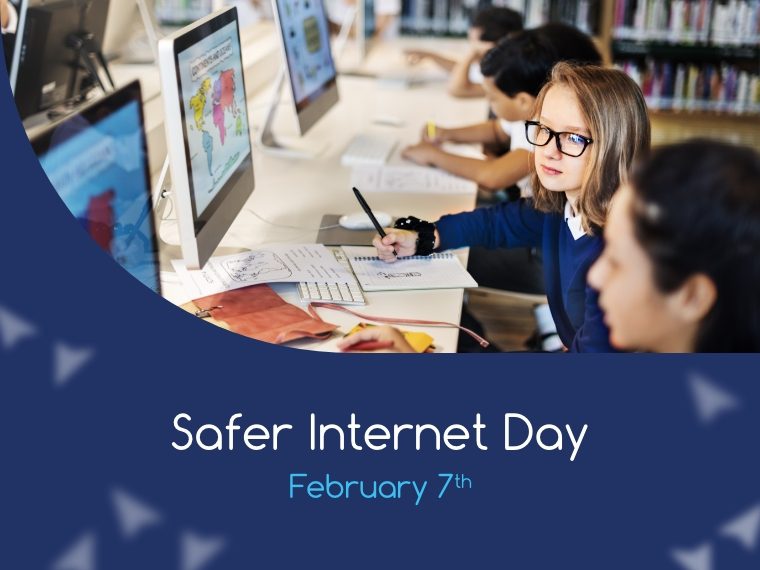February 7th marks Safer Internet Day, which aims to bring attention to potential dangers online and promote methods for tackling them. Statistics from the Online Safety Data Initiative state that over 80% of children (age 12-15) have had potentially harmful experiences online. This prevalence means that ensuring safety online for children should be a top priority of educators and parents everywhere.
A delicate balance needs to be struck between restriction, education and allowing children their privacy, especially as they move into adolescence. To mark Safer Internet Day, here’s easipc’s suggestions and methods for increasing children’s safety online.
Educating children
While parents often want to keep their children innocent forever, the unfortunate reality is that children must be aware of potential risks. Educating children is therefore crucial. Especially by building their understanding so that they can recognise a potential hazard and either avoid it, or speak to someone when unsure. These hazards include scams, misinformation, grooming among several others.
Of course, teaching very young children about these things is not as practical, but just talking to them about what they are doing online as part of daily conversation will help keep them open enough to talk if they do face any issues.
The NSPCC recommends asking open-ended questions about their favourite YouTube or TikTok creators. This demonstrates an interest in what they’re doing and being willing to learn about the kinds of content they are consuming both from a safety standpoint and a genuine interest in getting to know the child’s interests better.
Share best posting practice
Safety online isn’t just about other people. In fact, children can get themselves into some very hot water by posting things online without thinking, especially if they don’t understand the implications of what they are saying.
Make it clear to children that what they post is recorded, even if it is in a private chat or they delete it, and that saying things that are mean, disrespectful or potentially even discriminatory can have long term consequences for them, as well as hurting others in the short term.
Implementing parental controls or filtering
Whether in the home or in school, safeguarding via parental controls or filtering can be put in place to limit a child’s access to the internet. These filters work by blocking certain websites or apps which may contain inappropriate or harmful content, like those outlined by the UK Safer Internet Centre.
Parental controls are usually accessed and controlled on a device itself, within an app or platform, or can be implemented by a broadband provider at home or at school.
easipc’s extensive services include installing broadband services and filtering, blocking harmful content and helping to safeguarding across a range of primary schools, secondary schools and multi-academy trusts. Providing our customers with that all-important peace of mind in the ever-changing cyber space.
To contact us about your requirements, call us on 01604 286682 or email us at info@easipc.co.uk

